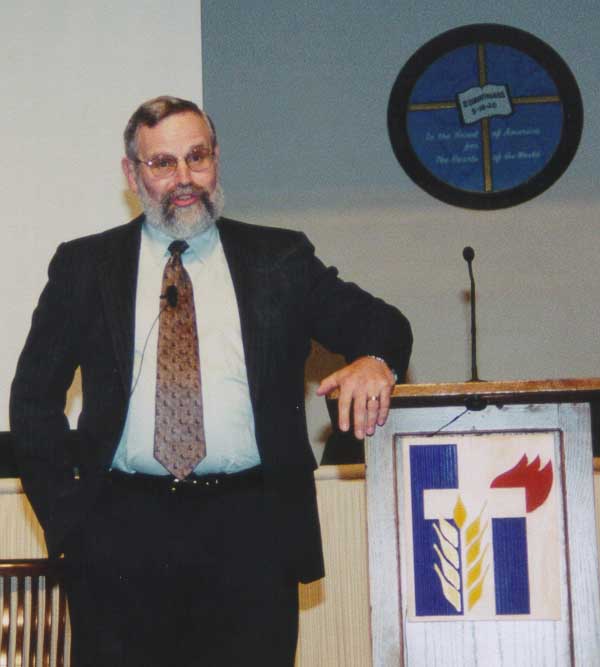
KANSAS CITY, Mo. (BP)–Renowned biblical archaeologist James Hoffmeier reported on his landmark excavation in Egypt during Midwestern Baptist Theological Seminary’s Sizemore Lecture Series Nov. 7-9. Hoffmeier is the professor of Old Testament and Near Eastern History and Archaeology at Trinity Evangelical Divinity School in Deerfield, Ill.
His current project involves an archaeological dig in Egypt. It is a dig of significant historical and biblical proportions for this reason: “No one has ever pinpointed the three sites related to the Exodus listed in Exodus 14:2,” Hoffmeier said, referring to the exodus of the Israelites from Egypt. “The goal is to identify the route of the Exodus and to pinpoint where the parting of the sea happened.”
That subject is his historical and biblical passion. His most recent book is titled “Israel in Egypt: Evidence for the Authenticity of Exodus Tradition.” Hoffmeier also recently was quoted in a U.S. News & World Report article on archaeology and the Bible.
Hoffmeier and an archaeological team began digging in the spring of 2000 in Tell el-Borg, Egypt, and continued this past spring. Hoffmeier said Tell el-Borg might be the ancient Migdol site in Exodus 14:2. What they found — which includes a fort, pottery and tombs — already is significant, he said.
“Never before has anyone found fired brick from this time frame,” he said. “Up until now, fired brick has only been found from as far back as the Roman period (after 63 B.C.).”
The artifacts they are finding are consistent with the time frame of the Exodus, around the 15th to 13th century B.C. Hoffmeier, whose project is funded by a Jewish layperson who read his book “Israel in Egypt,” hopes to return to the archaeological site next spring.
The report included a slide show of artifacts from the site. In the two previous lectures, Hoffmeier explained the relationship of history to theology and said there have been considerable attacks in the past 20 years on the historicity of the Bible, especially from Genesis to Joshua.
In the first lecture, he outlined scholars’ viewpoints on the topic of whether the Bible can or cannot be used as a book of history. In the second lecture, he used Psalm 136 as a model for explaining how theology and worship work together. He also spoke from Genesis 12:1-3 and Exodus 1 on God’s promises to His people.
Throughout the lecture series, Hoffmeier referred to archaeological evidence that proves the Bible is trustworthy. “It encourages us to believe what the Bible does say is true, and therefore, our theology, our lives, our faith can rest on a sure foundation.”
–30–
Midwestern Seminary student Rebecca Megli contributed to this story. (BP) photo posted in the BP Photo Library at http://www.bpnews.net. Photo title: HOFFMEIER SPEAKS.

















